Myanmar's military must be tried for genocide
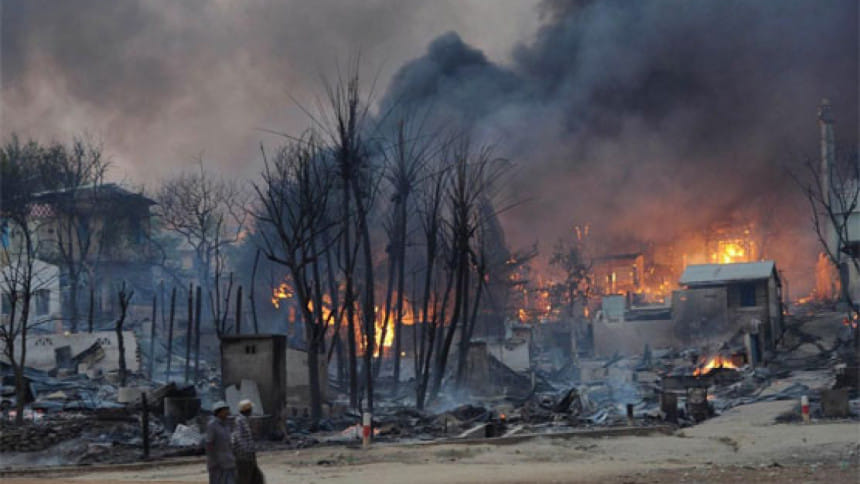
We thank the UN for exercising due diligence by issuing the strongest condemnation to date of the Myanmar military. We laud the UN fact-finding mission for holding the leadership of the Myanmar military responsible for the atrocities committed against the Rohingya population and for calling for investigation and prosecution of the security forces for genocide, crimes against humanity and war crimes. The mission has also noted that the civilian government allowed hate speech to thrive and oversaw the destruction of evidence.
The complicity of both the Myanmar military and civilian government in the gross human rights violations of Rohingyas is something the world already knew but the genocidal regime has remained unmoved—despite being responsible for creating one of the worst refugee crises in the region. The sham of a repatriation deal is a case in point.
Failure to try the leadership of the Myanmar military in a court of law would mean letting individuals in power get away with unleashing a campaign of rape, arson and indiscriminate killing. The UN mission has urged the UN Security Council to set up an ad hoc tribunal or refer the suspects to the ICC. But the UNSC's track record when it comes to taking action against Myanmar does not give one much hope. We appeal to our friend China, a permanent member of the UNSC, to acknowledge the gravity of the humanitarian crisis and change its stance on Myanmar. We also urge Russia to do the same. The Security Council's consistent failure to pass a single resolution to take action against Myanmar has prevented an entire persecuted population from getting a modicum of justice.
The UN mission's 14-point recommendations must not be ignored by the UNSC, regional organisations such as the EU and ASEAN, and other relevant bodies. International pressure on Myanmar must continue as Bangladesh has stretched its abilities in coping with the Rohingya crisis and needs an early solution.

 For all latest news, follow The Daily Star's Google News channel.
For all latest news, follow The Daily Star's Google News channel. 

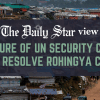

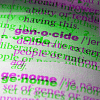
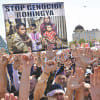
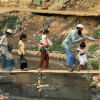


Comments